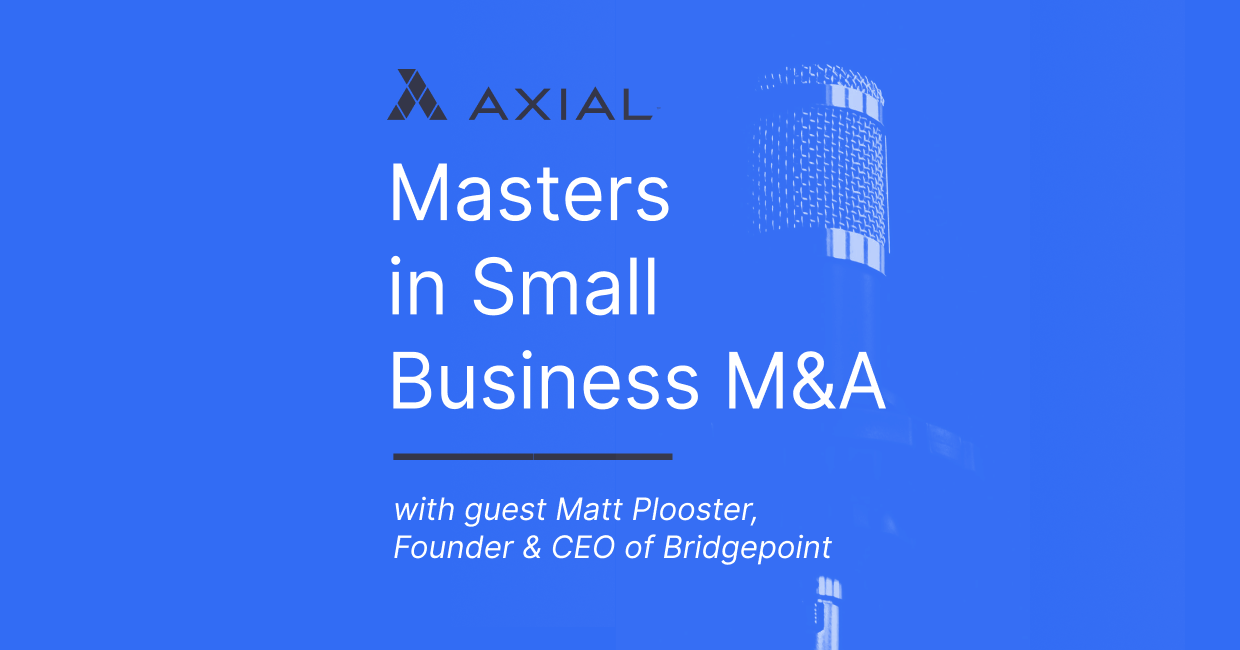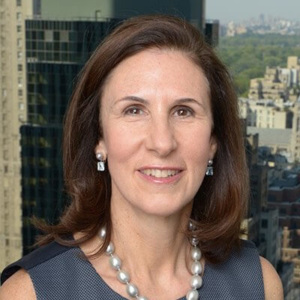
Private Credit Arrives in the Lower Middle Market: A Conversation with Bridgepoint’s Matt Plooster
Today’s guest is Matt Plooster, founder and CEO of Bridgepoint, a boutique investment bank based in Omaha, Nebraska. We start…
In 1986, Beatrice Mitchell co-founded the respected middle market investment bank Sperry, Mitchell & Company. We sat down with her to discuss the founding and evolution of her firm, as well as her insights on the current market.

Beatrice: Paul Sperry and I were working for Victor Niederhoffer back when he was doing M&A. His interests shifted to trading futures, and M&A became an orphan in the business. We saw the opportunity to create a new firm. I think one is born an entrepreneur, and I had always wanted to start a company. I had actually started a magazine in college. Paul Sperry, my partner, came from a family of entrepreneurs.
Beatrice: The key is just to work like a dog. It’s not rocket science. We had referrals and some business from our previous firm. We had enough of a track record to generate opportunities. It was hard work but very fun.
Beatrice: Our work product is so much more sophisticated than it was twenty or thirty years ago. We have great systems now — databases and processes that we have tailored to our needs. When we want to approach a buyer, we typically have a detailed history on their prior deals and how they act in a process. We have developed a strong analyst and associate pool, so we have the resources to create a more sophisticated work product.
Beatrice: Everything happens so much faster these days, from completing Purchase/Sale documents to completing due diligence. The deal process timeline has become incredibly compressed.
Of course, the basic process of selling a business has not changed, but buyers have. When we started in the early 1980’s, we were primarily dealing with strategic buyers. Back then, financial buyers were basically “boot-strappers,” putting very little equity into deals, financing them primarily through the few asset-based lenders willing to provide leveraged lending. Today, the whole structure of pricing has changed. Buyers are much more aggressive, and there are many more of them. PE sponsors have been breeding like rabbits. And now, a host of family offices are getting into the game.
Beatrice: We think it is a huge advantage to be a generalist. By avoiding the lulls in any particular space or sector, we experience less cyclicality. We also get a broader, more macro view of the world. Rather than defining our “market” vertically by secor, we choose to define it horizontally, by focusing on private, family, or owner-operator businesses. Deals involving private companies are just fundamentally different; they require different skills and a different approach to the marketing process.
Beatrice: This is one that nobody wants to hear, but the biggest mistake that sellers make is not selling. Business owners often view their companies as a growing bond. Yet, trees don’t grow to the sky. Company performance is always subject to competitive threats and business cycles. Like all good investments, owners should sell at a certain point. I talk to many owners who say, “Talk to me in a year.” When we come back to them in a year, their business is down. You also never know what uncertainty is around the corner — just look at the tariff situation right now.
I view us as 50% bankers and 50% consultants. We give people a lot of advice on when to sell, and how to position themselves to be ready to sell.
Beatrice: Culture takes a long time to change, and change is usually forced by external forces. As institutional investors demand more diversity, it will occur, just as it did at law, accounting, and consulting firms.
No one is going to hand this to women — they have to force it. But as a woman, if you get tired of the institutional bias and the lack of respect, go start your own business, like I did. That way, you get to set the rules.
Personally, I think being a woman in finance is a huge advantage. Women are good listeners and good negotiators. It’s always surprising to me that more PE funds haven’t picked up on this.
Beatrice: There is obviously a lot of cash out there. 18 months ago, there was a perception among PE sponsors that the market was too frothy and they could not find good deals. Now they’ve accepted and internalized this as their new reality; to get deals done in today’s market, sponsors need to be willing to pay market-clearing prices and move to close quickly.
I’m not sure what happens when they have to harvest these companies. Buyers are going into deals at very high prices, and everything needs to work near perfection for them to get their returns. It’s a great time to be a seller, however.
If interest rates go up, there will be a big impact on the M&A market, not just on the PE firms but also on sellers. It’s a huge concern.
Beatrice: Family offices run by former entrepreneurs are very appealing to our client base, and they are winning deals over PE funds. Our seller clients see these fellow entrepreneurs and think, “These guys are the real thing.”
A lot of the PE firms are trying to differentiate with operating partners, but too often there is a mismatch. They choose operating partners who come from large companies, not entrepreneurs who have built up small ones. That can work against them.
Additionally, some business owners believe that family offices have a huge advantage over PE sponsors, in that they can hold portfolio companies indefinitely, as opposed to the typical 3-5 year flip with PE funds. This long time horizon can be very appealing to owners who spent years building their companies and want to see as little disruption to their businesses as possible. However, for owners who have rolled proceeds back into their company with a PE sponsor, the certainty of a sale with 3-5 years has great appeal, as it provides assurance of liquidity.
Beatrice: It’s interesting how manufacturing is having a resurgence in the USA. The big challenge right now is lack of labor. Everyone has a “help wanted” sign outside their factories. This is not just for blue collar jobs, but also marketing and finance roles. Lack of trained, available labor is really hurting business. A number of our clients are turning down work because they can’t hire enough people. Automation can only help with some of these shortages.
